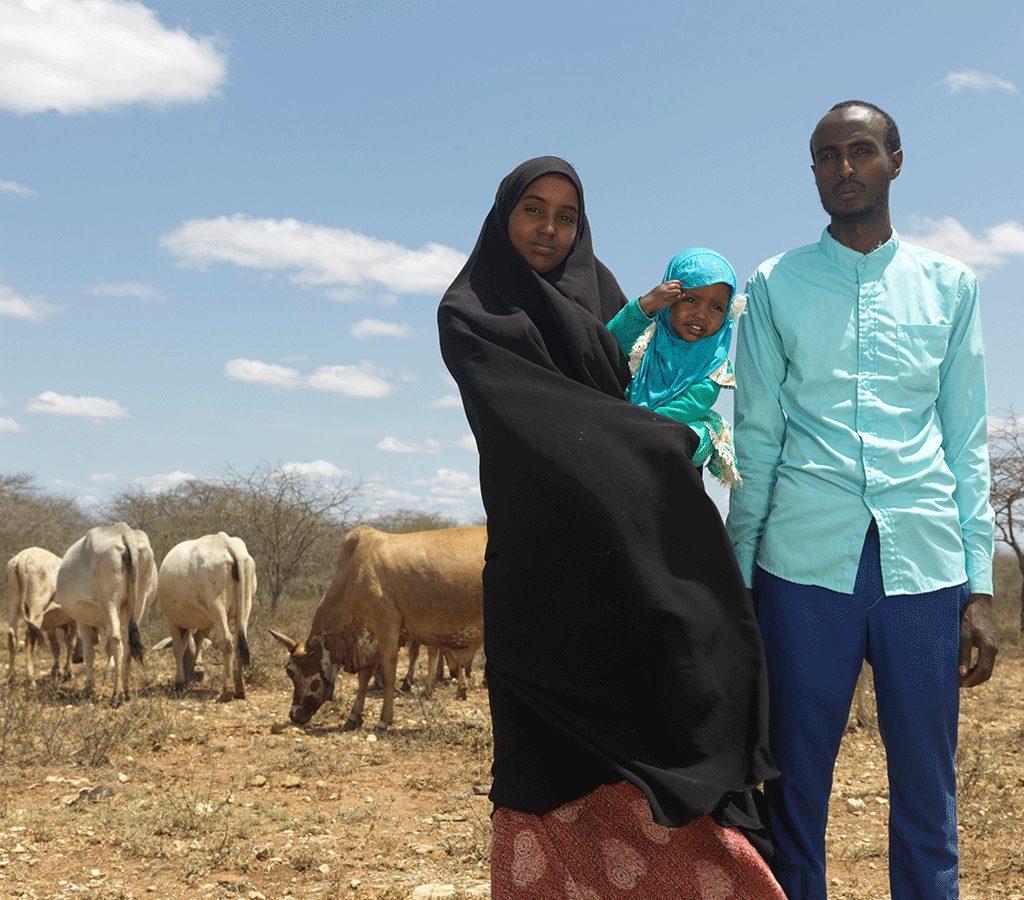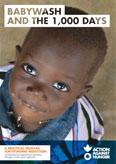
Humanitarian context
Food insecurity, displacement and poverty have increased in Ethiopia owing to hunger, humanitarian crises, long droughts in the south and south-east of the country and conflicts in Western Oromia, Benishangul-Gumaz and the north, as well as flooding in Gambela and parts of the Somali region.
Across the country, 22.6 million people required humanitarian aid to survive in 2022, but humanitarian funding did not grow at the same pace as their needs. By the end of the year, only half of this population had been assisted. National rates of excessive weight loss and stunting also increased. Specifically, between 2019 and 2022, the rate of acute undernutrition rose from 7% to 11% in all of Ethiopia, while stunting rose from 37% to 39%.
BENEFICIARIES
workers
Our activity
Action against Hunger provides humanitarian aid in Ethiopia, addressing disaster-affected and hard-to-reach areas. Our interventions in nutrition, health, water, sanitation and hygiene, food security and livelihoods help protect millions of people in need.
In 2022, we reached 2.9 million people in 61 districts affected by conflict and drought in the regions of Tigray, Amhara, Benishangul-Gumaz, Gambela, Oromia and Somalia, covering 45% more of the population than the previous year. With increased funding and territorial coverage, we prioritize the urgent needs of the most affected communities, especially children and mothers. Action Against Hunger boosted recovery and strengthened the country’s resilience.
WHERE
WE HELP
We help 24.5 million people each year. We work in 55 countries in Africa, Asia, Latin America and Europe, those most threatened by hunger.
EYEWITNESSES
MEDINA: "I'M SO HAPPY AND EXCITED THAT MUNIRA IS NOW RUNNING ALL AROUND"
Medina, 21, lives with her husband Isac and their 18-month-old daughter, Munira, in Guchi, Ethiopia. In her small village, Medina makes great efforts for her family. Her husband is often away, herding the family livestock for hours at a time to earn an income. Despite being nine months pregnant, during these long periods Medina continues to care for the family, fetching water, doing housework and cooking.
Families like Medina's, who depend on livestock for food and income, constantly face the realities of the climate crisis. Drought and long dry seasons mean that small-scale farmers are often unable to feed their livestock. Without money or access to food or milk, communities, especially young children, go hungry.
The starvation period often occurs during the dry season. For some of the poorest people, this leads to an increase in cases of severe malnutrition. "When it doesn't rain, the cattle are hungry and have nothing to eat, so in turn we don't get milk and we go hungry," explains Medina.
Eight months ago, Medina's daughter Munira started losing weight and refusing to eat. "Munira was not eating," explains Medina. "I had no strength, I didn't know what to do. I held her the whole time. At first, Medina thought Munira would recover on her own, and began treating her daughter with traditional remedies.
Munira could not keep her food down, and vomited straight after eating. Medina became increasingly worried and desperate because she did not know what her daughter's problem was. She watched her daughter lose weight every day.
"The only way I can express the pain I went through is that I was running with Munira from one hospital to another and looking for help, leaving all the work I had to do behind," says Medina. For months, Medina knocked on neighbours' doors asking for help. She even went to hospitals, but no one knew how to treat Munira.
The stress of watching her daughter's health deteriorate caused Medina to lose her appetite. Soon after, she began to lose weight herself. "Everyone was worried, my whole family was worried. I stopped eating because I was so worried that she would die," says Medina.
One day, Action Against Hunger health and nutrition staff visited the community of Medina to raise awareness about malnutrition. It was then that Medina learned about Action Against Hunger's malnutrition treatment programmes.
Munira was admitted to a life-saving programme where she was treated with medication and provided with ready-to-use therapeutic food (RUTF), a peanut-based paste used to treat children suffering from malnutrition. "The Action Against Hunger staff checked her weight and gave me therapeutic food to give her three times a day," says Medina, noting, "They make sure we are following the instructions and eating the therapeutic food properly by checking her weight."
After her treatment and careful follow-up, Medina noticed a positive change in her daughter. "I noticed that her belly was getting bigger and her body was getting bulkier." Medina's perseverance has saved Munira's life. "I am so happy and excited that Munira is now running all around," says Medina. "Now I can do anything I want at home because she runs and plays. That makes me very happy. And only dreams occupy Medina's thoughts: "When she grows up, I want to send her to school and I wish her all the best for the future."

